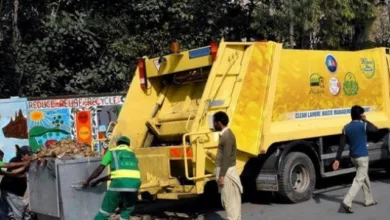Hurriyat leaders reiterate call for observing August 5 as ‘Youm-e-Istehsal’

SRINAGAR: Hurriyat leaders have reiterated their appeal to the Kashmiri people to observe August 5 as “Youm e Istehsal” (Day of Exploitation) to mark the third anniversary of India’s Hindutva regime’s decision to abrogate Article 370/35-A, which granted special status to occupied Jammu and Kashmir.
According to Kashmir Media Service, the leaders, including Ghulam Muhammad Khan Sopori, Syed Bashir Andrabi and Khawaja Firdous in their statements issued in Srinagar termed the move a “humiliating assault” on Kashmiris’ identity and territorial integrity.
They described it as a deep-rooted conspiracy against the Kashmiri people, aimed at changing the territory’s demography and depriving its people of their resources, jobs, identity, and right to self-determination.
The leaders condemned the Indian government’s settler-colonialism policies, including the enactment of anti-Kashmiri laws, and urged the international community to take effective notice of India’s actions in occupied Kashmir. They also denounced the brutal killing of Hamas leader Ismail Haniyeh by Israel, terming it “state terrorism.”
The Hurriyat leaders extended their heartfelt condolences to the bereaved family of Shaheed Ismail Haniyeh and the people of Palestine, expressing solidarity with the Palestinian people in their struggle for freedom and self-determination.
Expired medicines worth millions dumped in IIOJK hospital washroom
In a shocking display of apathy and mismanagement, a huge stockpile of expired medicines worth millions of rupees has been found dumped in the washroom of a hospital in Indian illegally occupied Jammu and Kashmir.
According to Kashmir Media Service, the expired medicines, including iron supplements and antibiotics, were found discarded in the washroom of the New Type of Primary Health Center (NTPHC) in Bagtore village of Gurez.
Local residents have expressed concern over the shortage of medicines in the area, particularly for iron deficiency, which affects many women in the territory. The incident has raised questions about the administration’s commitment to providing better healthcare facilities in border areas.
Residents have complained about the lack of medicines, forcing them to travel long distances for treatment. This disturbing trend suggests that the authorities prefer to let vital resources rot rather than provide them to those who desperately need them, exacerbating the suffering of the people in the occupied territory.
Source link



